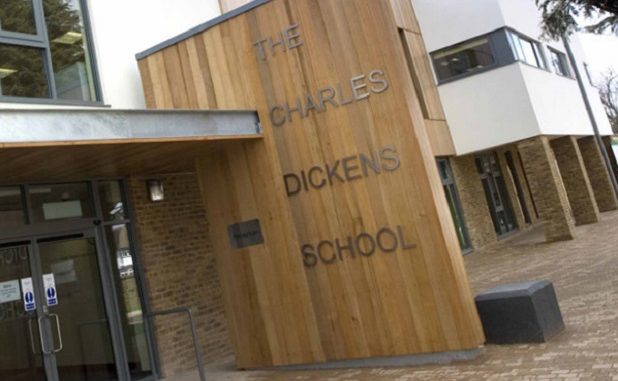
The Charles Dickens School in Broadstairs has been identified as the highest performing non-selective school in East Kent according to the government’s School Performance Tables.
The performance is based on the headline Progress 8 measure. This shows how much progress pupils make from the end of primary school to the end of year 11 based on results in up to 8 qualifications, which include English and maths.
A score above zero means pupils made more progress, on average, than pupils across England who got similar results at the end of key stage 2.
A score below zero means pupils made less progress, on average, than pupils across England who got similar results at the end of key stage 2.
The Charles Dickens School achieved a score of +0.07, higher than the other 18 non-selective schools in Thanet, Canterbury and Swale.

Warren Smith, CDS headteacher, said: “This result is a further reflection of the hard work of our teachers and pupils, and the strong academic culture we have at CDS. It is very difficult for non-selective schools to achieve a positive P8 score and it underlines our pledge to our school community that if you attend well and do the things that are asked of you, we can almost guarantee that you are going to do very well.”
Data analysis conducted by the education newspaper Schools Week has also looked at the top ten most improved schools in the country on Progress 8, between 2019 and 2023, who have above average proportion of Pupil Premium pupils. Two Thanet schools are in the top 10, with Hartsdown Academy ranked 4th and The Charles Dickens School ranked 8th most improved in the country.
For Hartsdown Academy the average progress 8 score in 2021/22 was -1.34 but results for the 2022/23 academic year show a significant improvement at -0.4.
For Charles Dickens School Progress 8 score for 2022/23 is 0.07 improved from last year’s 0.13.

